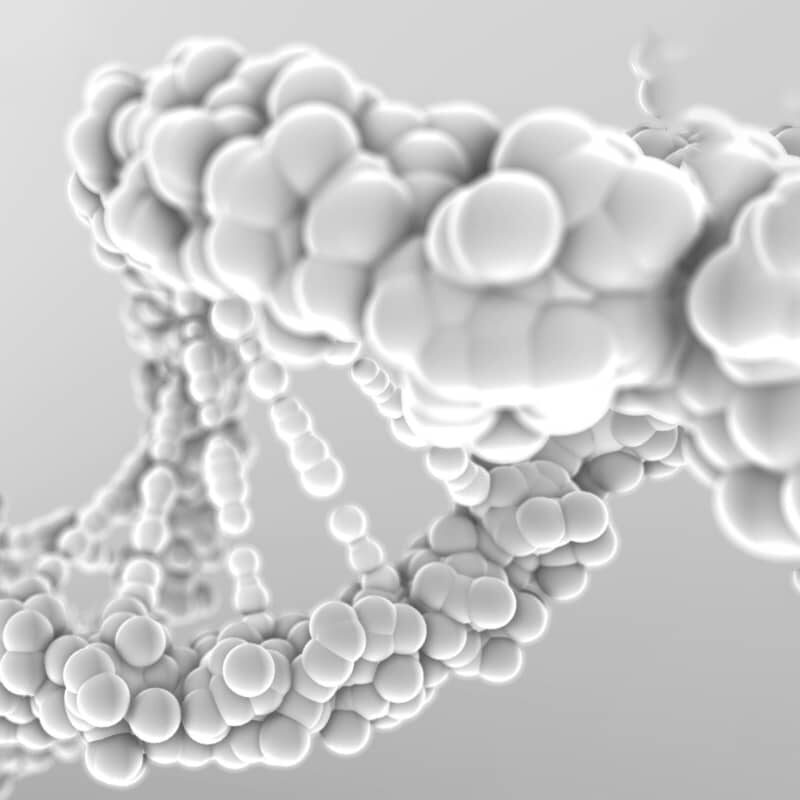
For disease detection, every molecule counts.
Our molecular counting platform can help quantify nearly undetectable DNA changes, unlocking improvements to non-invasive prenatal screening and liquid biopsy.
Our molecular counting platform can help quantify nearly undetectable DNA changes, unlocking improvements to non-invasive prenatal screening and liquid biopsy.
Prenatal
Traditional non-invasive prenatal screening focuses on assessing a fetus’ risk for larger chromosomal changes (e.g., an extra chromosome such as trisomy 21). But several common and severe conditions are the result of much smaller genetic changes that are not as abundant in the maternal bloodstream. Sickle cell disease, for example, is an inherited condition caused by a base pair alteration within a single gene.
Identifying these tiny changes within cfDNA is complex because the fragments are small and sparse compared to the wildtype variations and vast maternal DNA in the background.
Oncology
It is important to monitor how a patient’s tumor changes over time. Scans are non-invasive and widely used but can present logistical, cost, and radiation challenges. Liquid biopsy tests are a rapidly growing mechanism to non-invasively look at circulating tumor DNA (ctDNA; a type of cfDNA).
Some small but meaningful tumor changes can be challenging to detect as they may be hard to physically see (on scans) or only reflect minimal changes to the amount of ctDNA in the blood (liquid biopsy). Currently available liquid biopsy products for monitoring focus on qualitative measurements that primarily work when the tumor can be surgically removed (minimal residual disease detection), resulting in an unmet medical need when surgical removal is difficult.
Tiny-scale changes call for tiny-scale quantification
BillionToOne’s proprietary molecular counting technology, or Quantitative Counting Templates™ (QCTs), quantifies DNA fragments (molecules) to detect conditions caused by tiny DNA variations that can be sparse in the bloodstream. These include pregnancy-related DNA that code for recessively inherited conditions such as sickle cell disease and cystic fibrosis and ctDNA in the case of cancer.
How It Works
molecular counting
An accurate count of disease-related DNA fragments (molecules) in a blood sample can tell us about the status of a patient’s cancer or a fetus’ risk for genetic conditions. Because some fragments are tiny and/or sparse, they must be amplified. However, amplification can confound the challenge of detecting disease as it can be noisy and molecules amplify at different rates. Adding QCTs prior to amplification provides a measurement tool that allows for better quantification after this step to determine how many disease molecules were in the initial sample to begin with.
add
Add a specific number of traceable, synthetic DNA fragments called QCTs (n1) into the patient’s blood sample, which contains an unknown number of DNA fragments of interest (
m1) among a vast background of the patient’s genome.
amplify
Using PCR, the DNA fragments
of interest are amplified at the
same, unknown rate as QCTs.
count
Count the number of QCTs ( n2) in the amplified sample and divide it by the number added to the original sample. This is the amplification multiplier (x).
compute
Apply the multiplier (x) from the QCTs
amplification to solve for the number of
DNA fragments of interest in the original
sample ( • m1). This involves proprietary
machine learning-enabled bioinformatics
and computation methods.

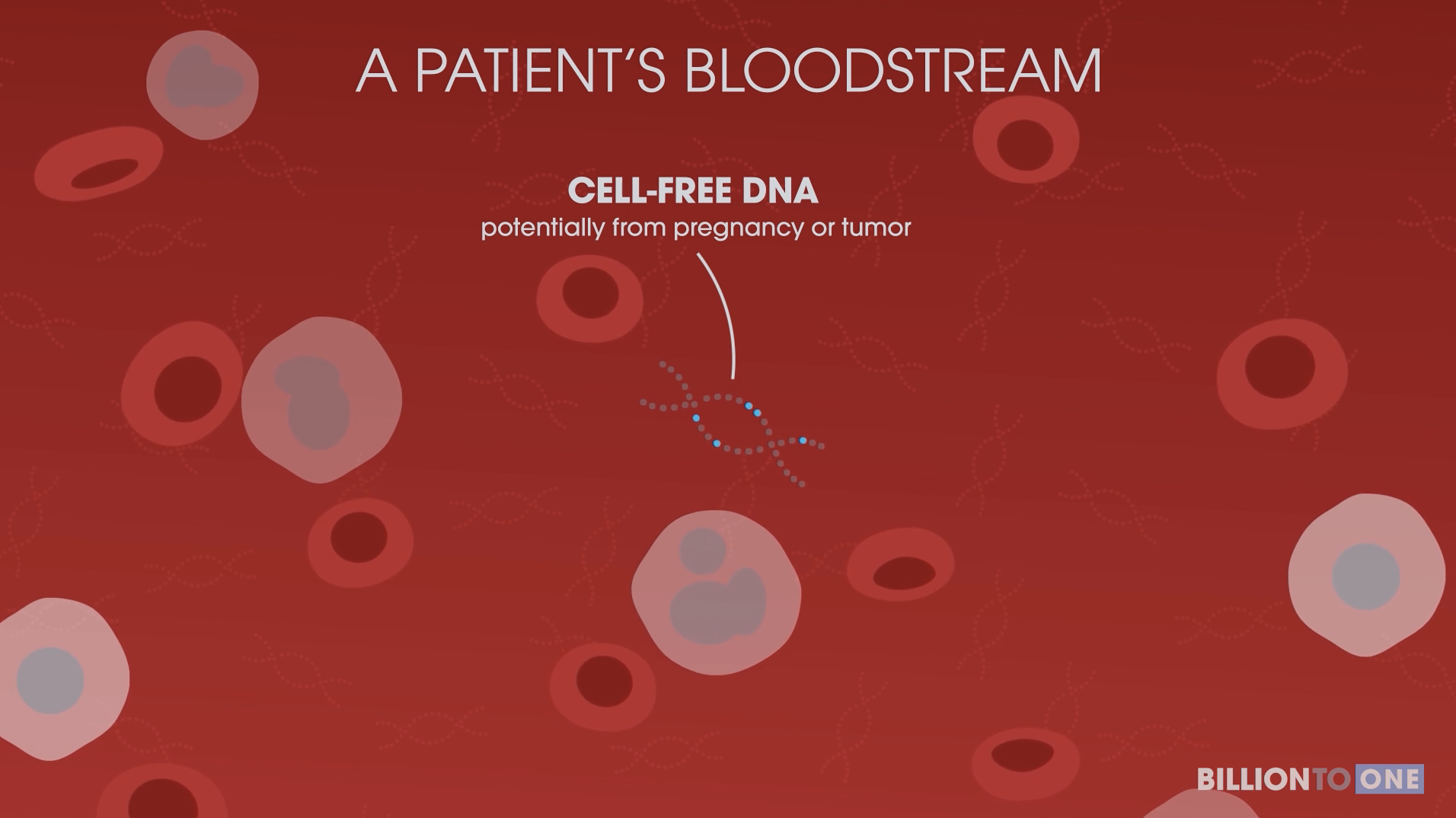
Our molecular counting technology makes our commercially available non-invasive prenatal test, UNITY Screen™, possible. UNITY is the only NIPT that can assess fetal risk for recessive conditions and aneuploidies from a single maternal blood draw.
We are also actively looking for research collaboration partners for our new research liquid biopsy products, Northstar Select™ and Northstar Response™.
Publications
Published in Obstetrics and Gynecology
April 16, 2025
Clinical Performance of Cell-Free DNA for Fetal RhD Detection in RhD-Negative Pregnant Individuals in the United States
Read Article for Clinical Performance of Cell-Free DNA for Fetal RhD Detection in RhD-Negative Pregnant Individuals in the United States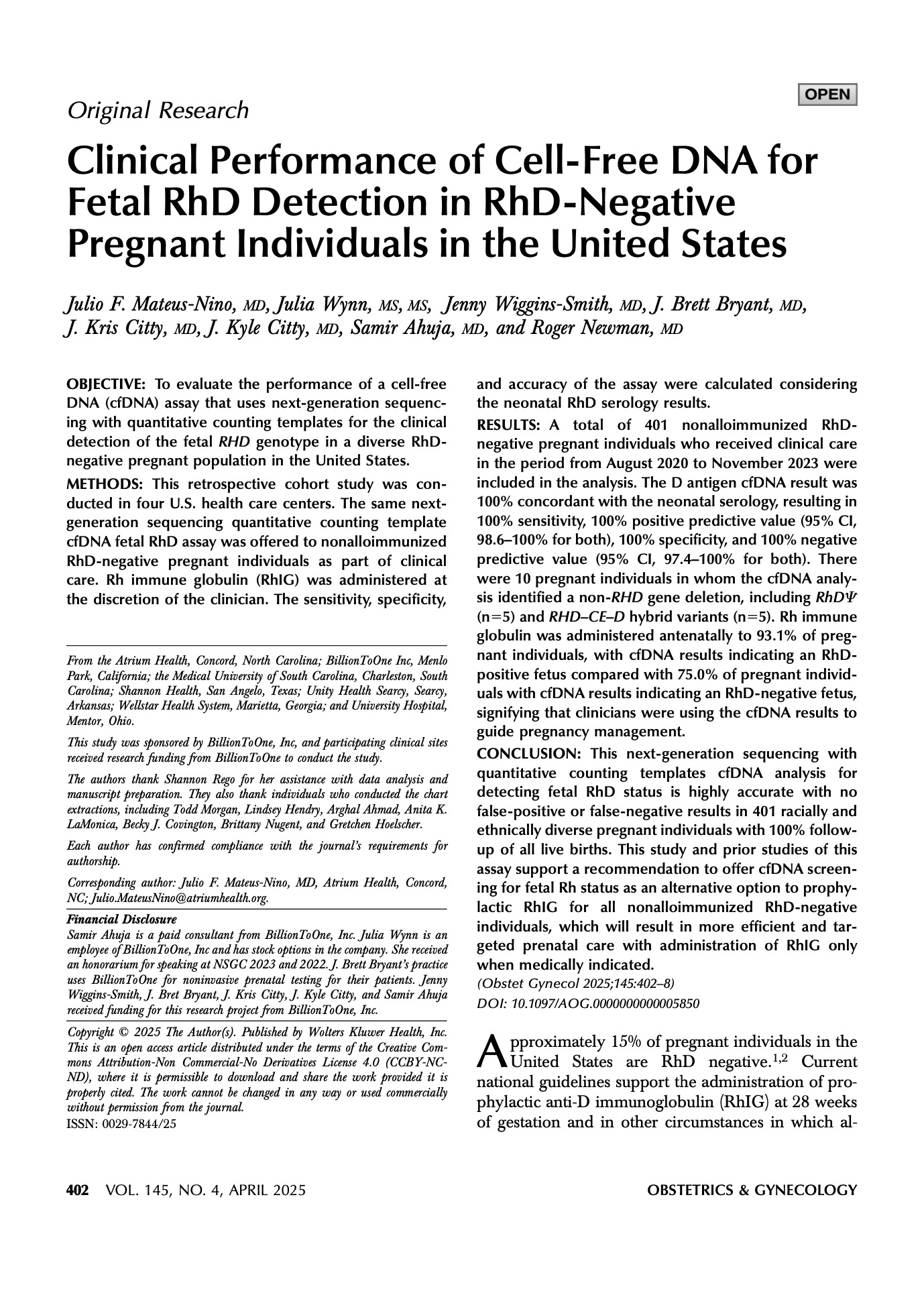
Published in Scientific Reports
February 18, 2025
Molecular counting enables accurate and precise quantification of methylated ctDNA for tumor-naive cancer therapy response monitoring
Read Article for Molecular counting enables accurate and precise quantification of methylated ctDNA for tumor-naive cancer therapy response monitoring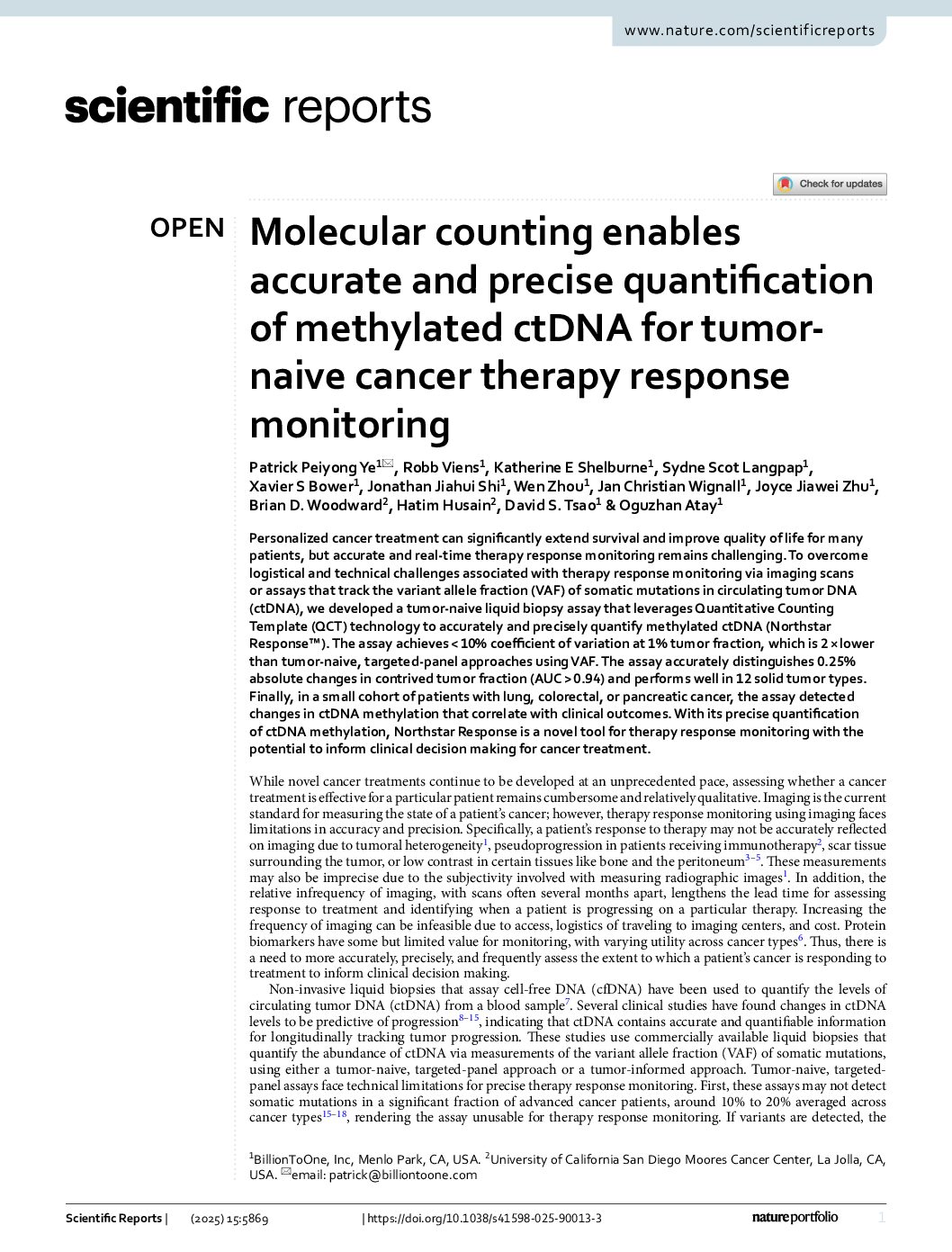
UNITY Fetal Antigen Clinical Outcomes
Published in Obstetrics and Gynecology
July 25, 2024
Cell-Free DNA Analysis for the Determination of Fetal Red Blood Cell Antigen Genotype in Individuals With Alloimmunized Pregnancies
- 465 outcomes collected
- 100% concordance to neonatal outcomes
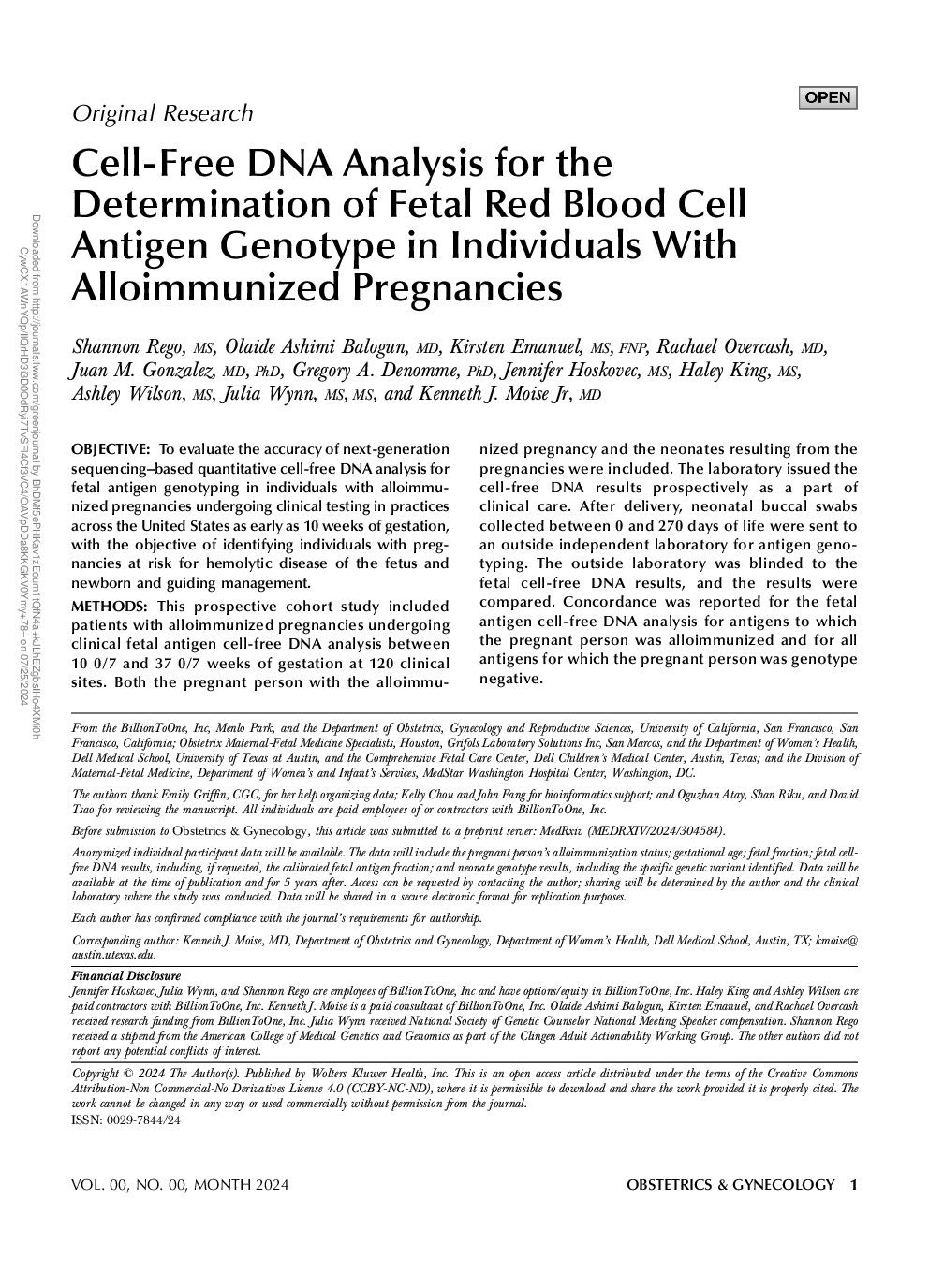
Published in ASCO 2024 Poster Session
May 29, 2024
Clinical validation of Northstar Select, a novel liquid biopsy assay for comprehensive genomic profiling of solid tumors.
Read Article for Clinical validation of Northstar Select, a novel liquid biopsy assay for comprehensive genomic profiling of solid tumors.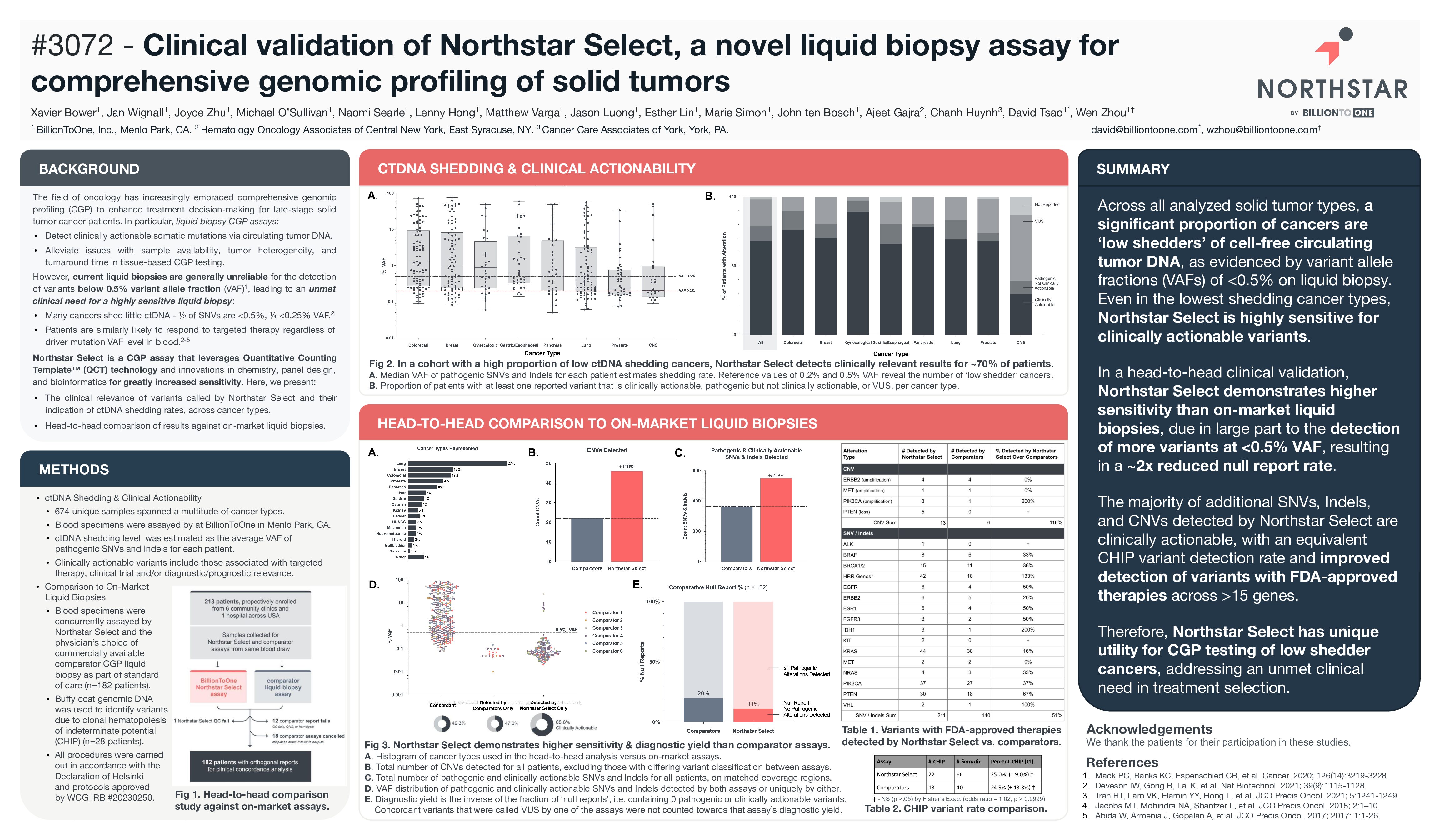
Published in ASCO 2024 Poster Session
May 29, 2024
A novel liquid biopsy assay with an 88% detection rate of genomic alterations across CNS tumors.
Read Article for A novel liquid biopsy assay with an 88% detection rate of genomic alterations across CNS tumors.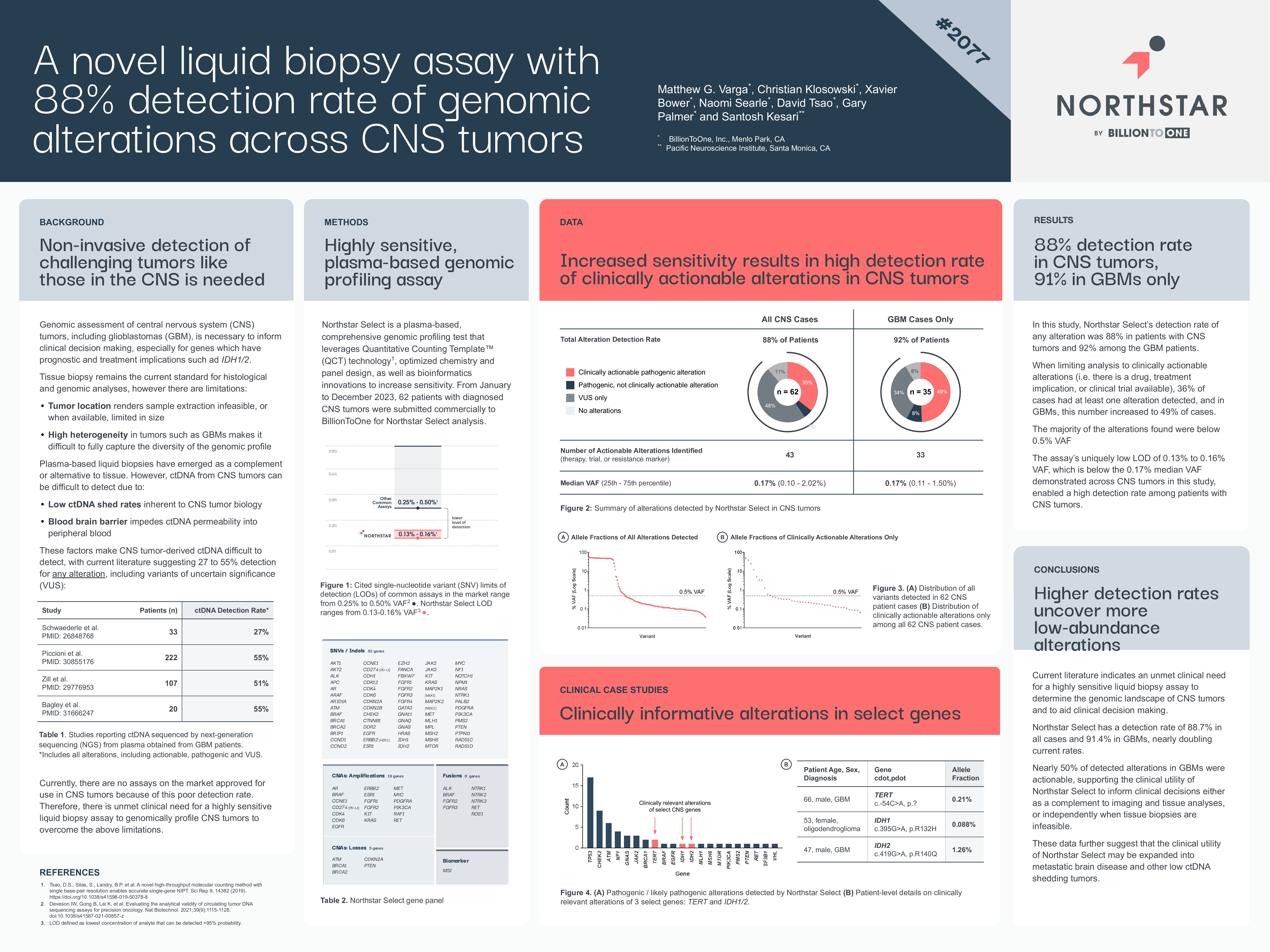
Published in AACR Poster Session
March 22, 2024
Analytical and clinical validity of Northstar Select, a quantitatively enhanced liquid biopsy assay for comprehensive genomic profiling of solid tumors
Read Article for Analytical and clinical validity of Northstar Select, a quantitatively enhanced liquid biopsy assay for comprehensive genomic profiling of solid tumors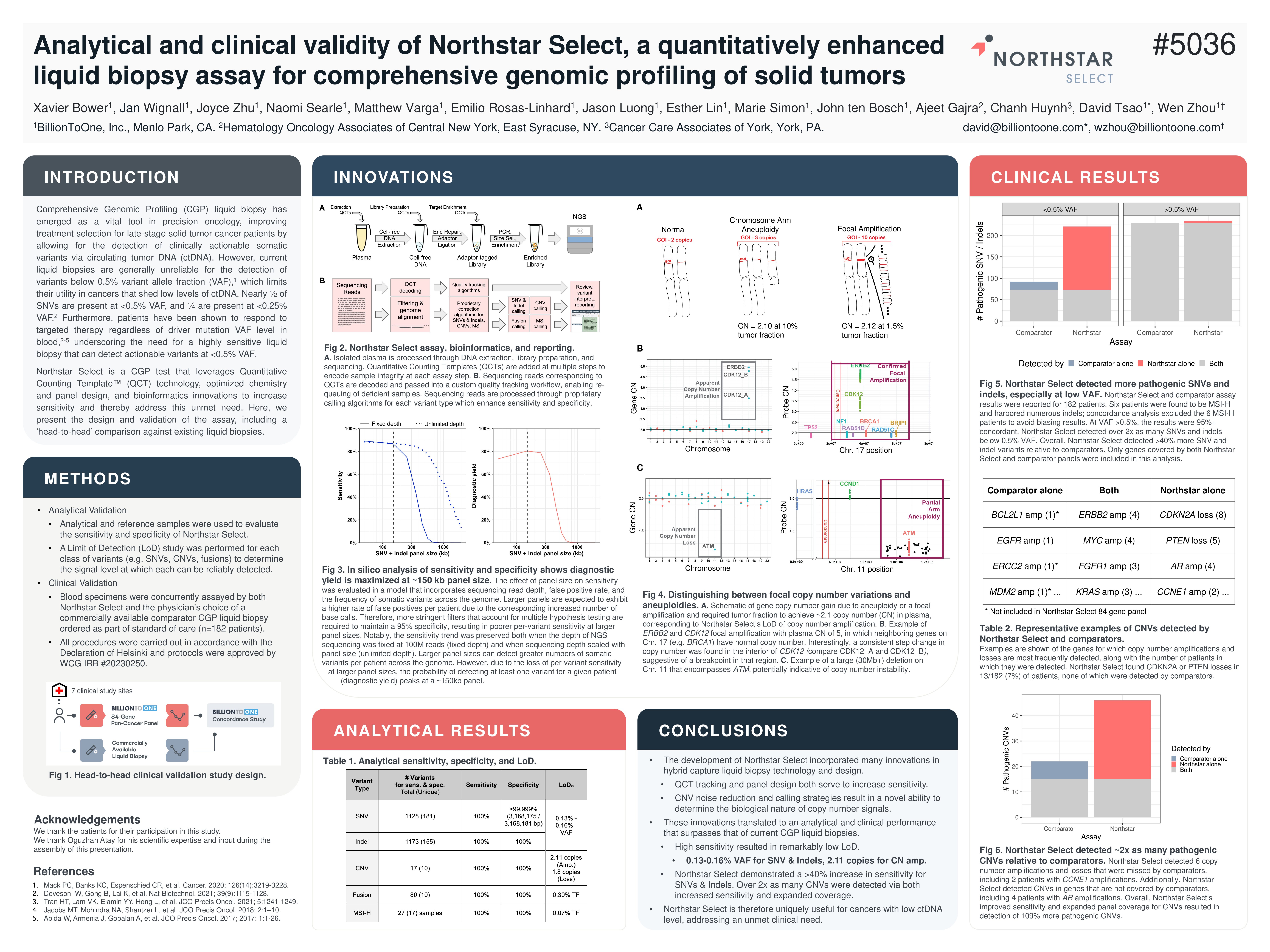
UNITY Aneuploidy NIPT Clinical Validity
Published in Annals of Gynecology and Obstetrics Research
May 21, 2024
Performance Characteristics of a Next Generation Sequencing-Based cfDNA Assay for Common Aneuploidies in a General Risk Population
- 99.7% sensitivity & 99.9% specificity
- Results applicable to a general obstetric population: 80% of patients in the study were <35 years of age
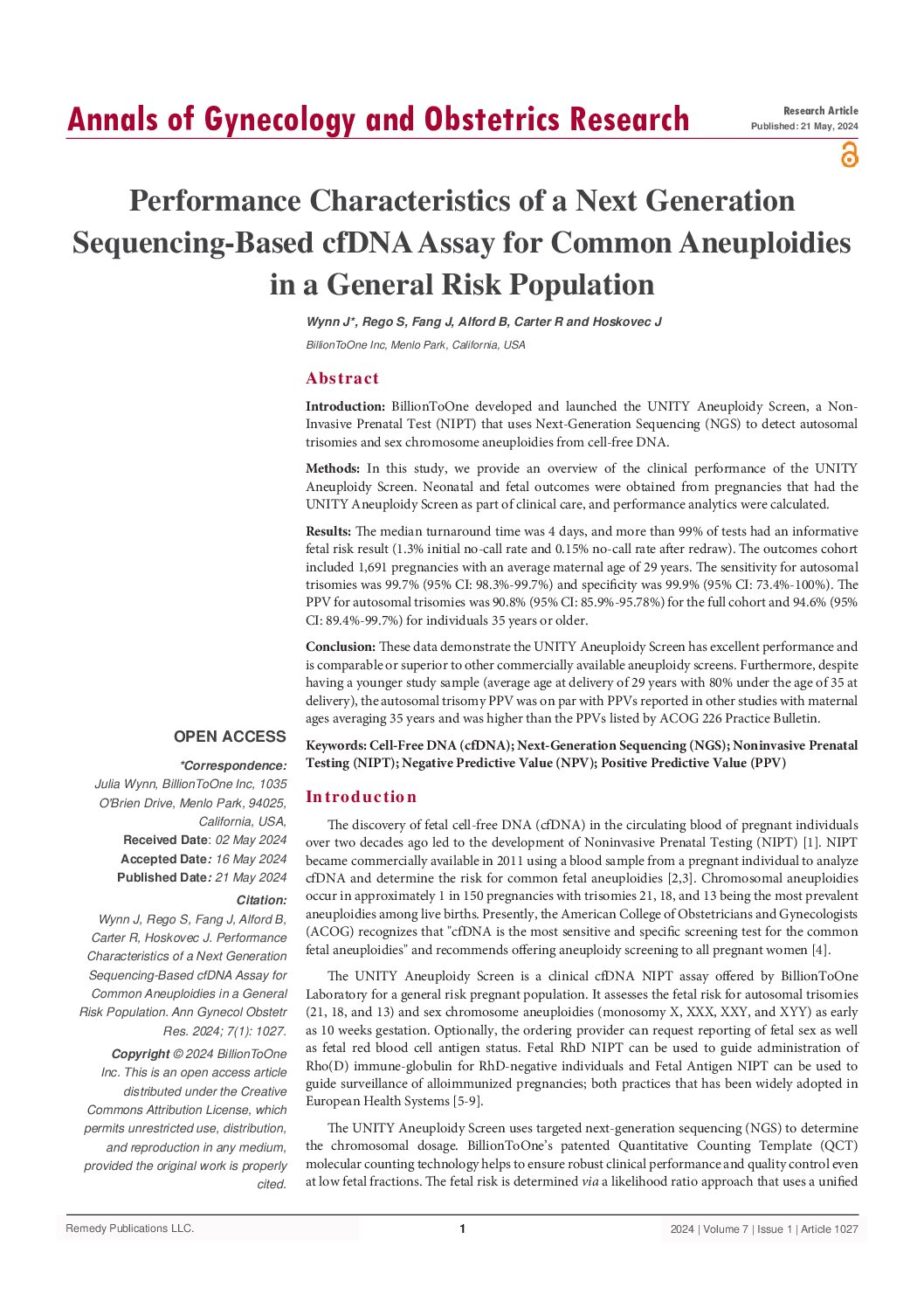
UNITY Fetal Risk Screen Clinical Validity and Utility
Published in Prenatal Diagnosis
September 6, 2023
Performance of single-gene noninvasive prenatal testing for autosomal recessive conditions in a general population setting
- 528 neonatal outcomes, with at least 75 for each condition
- 99.8% NPV and 96% assay sensitivity
- All cases identified as 9 in 10 risk were confirmed to have an affected child via neonatal outcomes
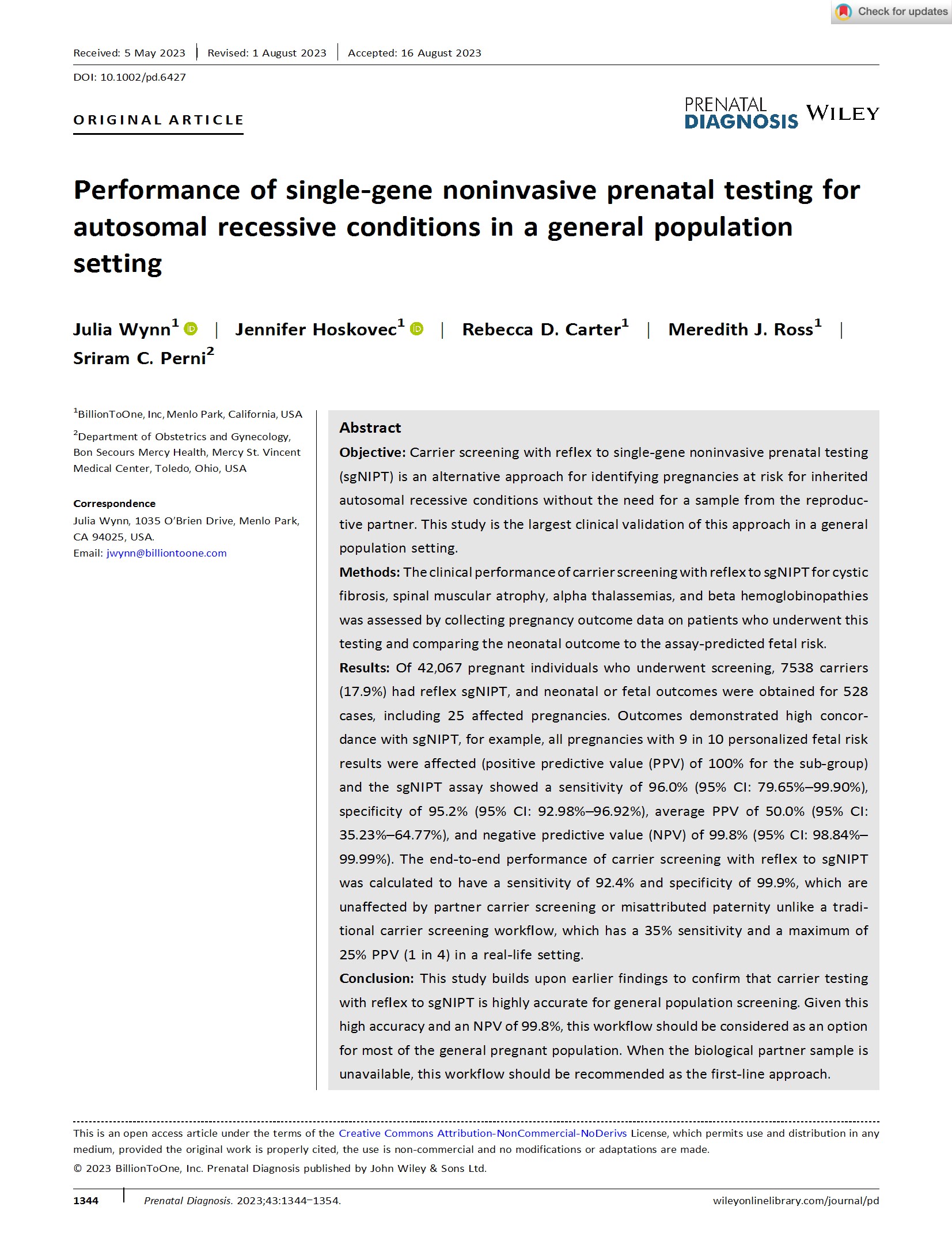
Validation for Red Blood Cell Fetal Antigen NIPT
Published in Scientific Reports
August 7, 2023
Validation of a Non-invasive Prenatal Test for Fetal RhD, C, c, E, Kell and FyA Antigens
- The assay correctly determined fetal antigen status for 1061 preclinical samples with an analytical sensitivity of 100% (95% CI: 99-100%) and analytical specificity of 100% (95% CI: 99-100%)
- A clear separation between antigen detected and not detected was demonstrated for 15,939 clinical plasma samples in a general population setting, with an estimated clinical sensitivity of 99.6%-100%
- This assay had excellent performance for fetal fractions as low as 1.1% and as early as 10 weeks of gestation, without the need for a sample from the biological partner
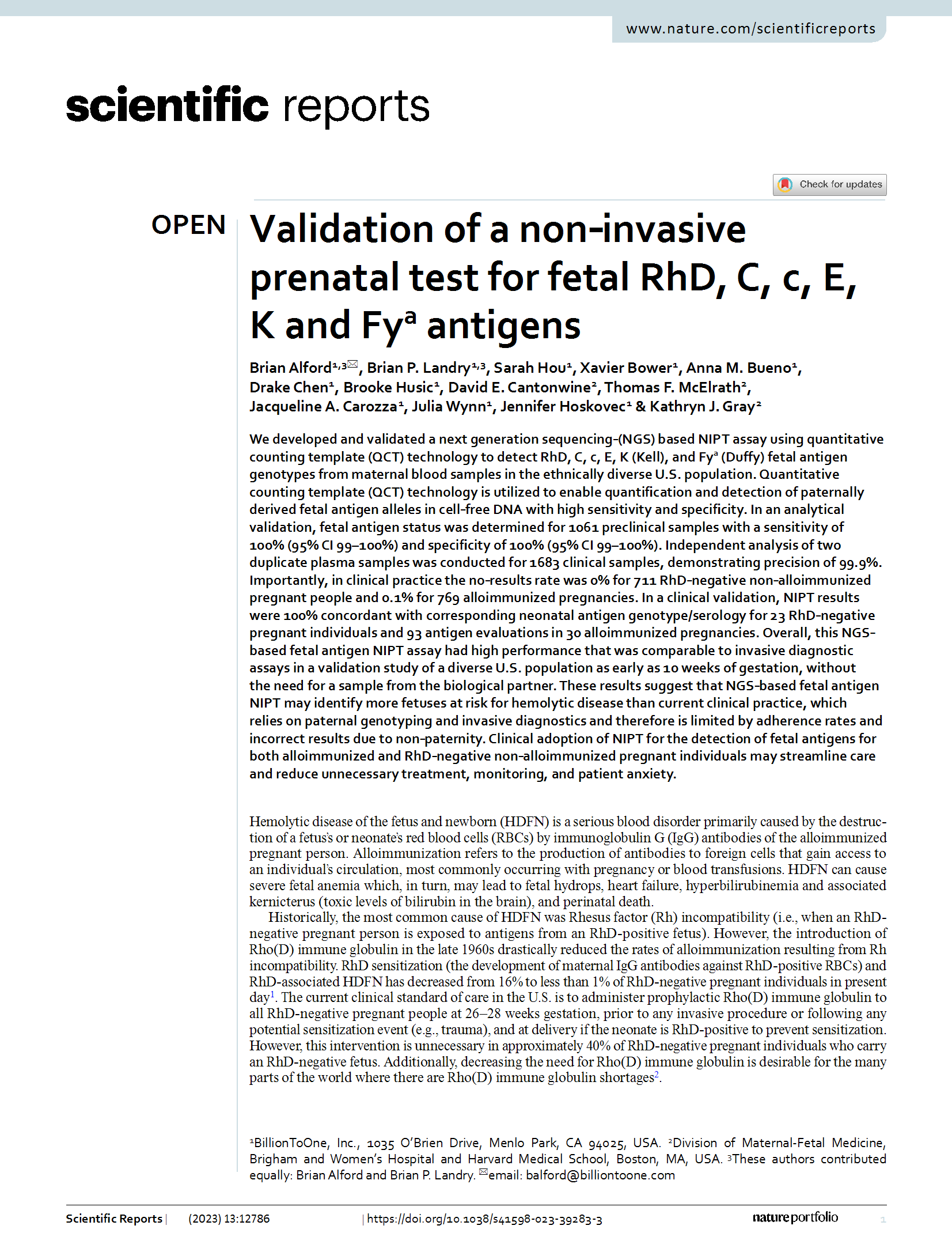
Clinical Validity and Utility for UNITY Carrier Screen with sgNIPT
Published in Genetics in Medicine
December 1, 2022
Maternal carrier screening with single-gene NIPS provides accurate fetal risk assessments for recessive conditions
- Single-gene NIPT had a 93.3% clinical sensitivity in 191 cases with outcome data compared to ~35% of traditional carrier screening
- PPV was 48.3% vs traditional carrier screening (25%); NPV was >99.4%
- Full 9151 sample set had an estimated end-to-end 90% sensitivity and 99.8% specificity for carrier screening with single- gene NIPT
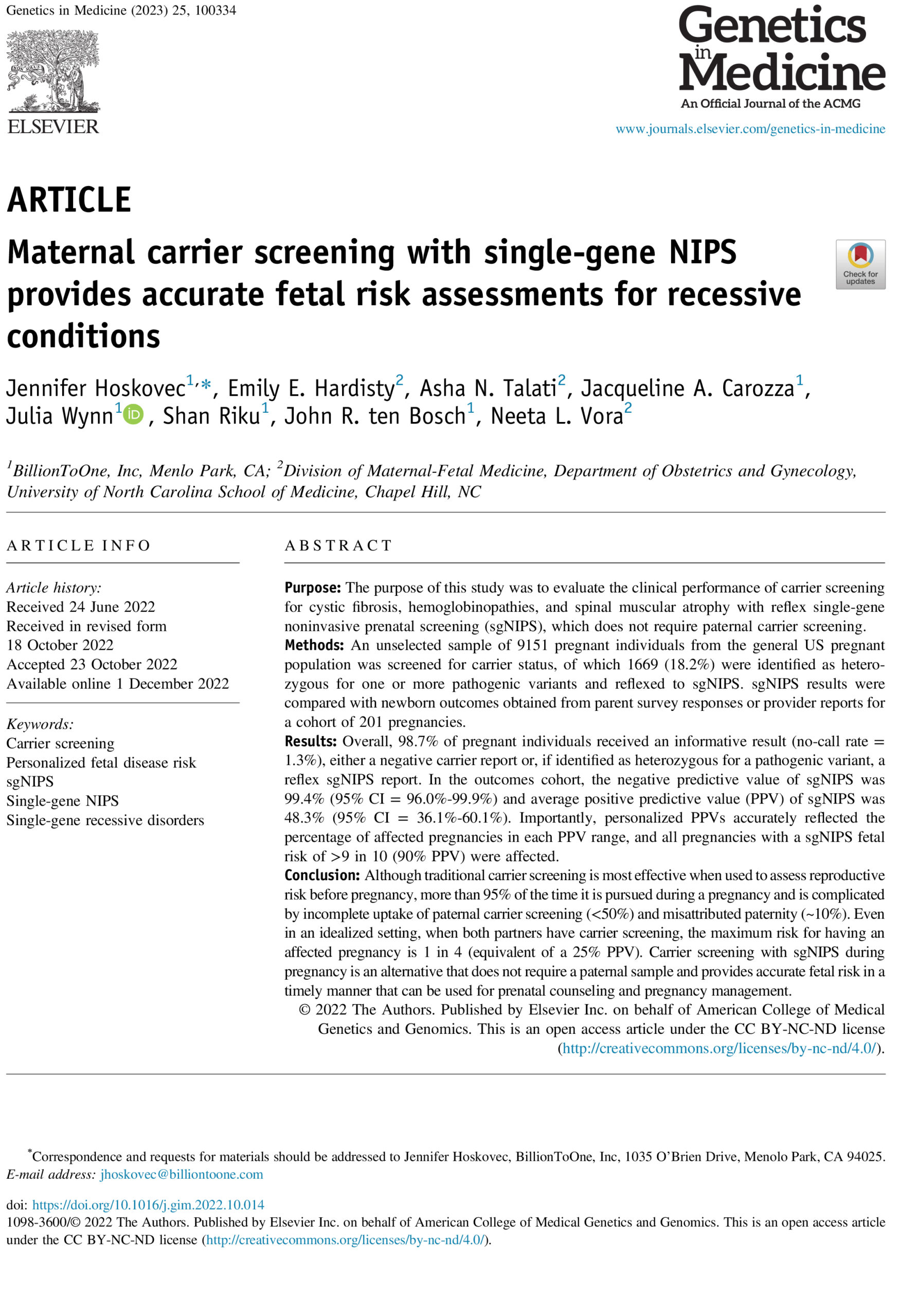
Sickle Cell Disease Validation
Published in American Journal of Hematology
April 16, 2022
Validation of single-gene noninvasive prenatal testing for sickle cell disease
- Single-gene NIPT accurately identified all affected pregnancies as high risk at a greater than 9 in 10 risk
- Single-gene NIPT accurately identified all unaffected pregnancies as low or decreased risk
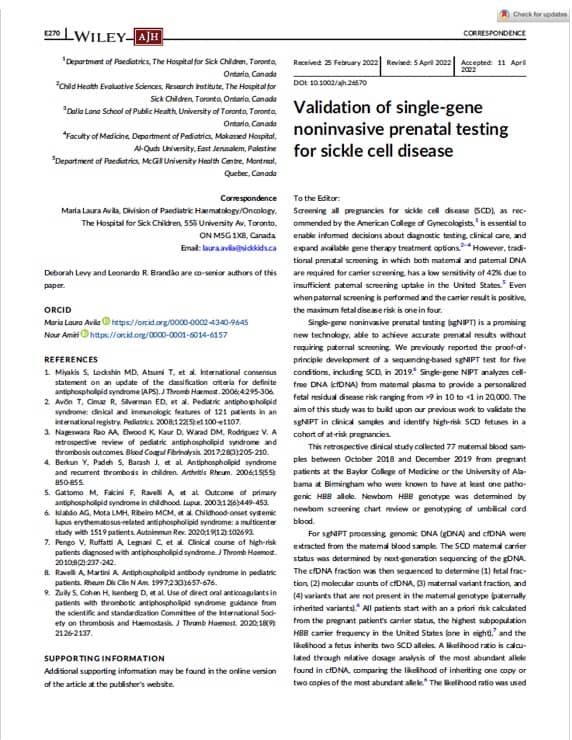
Single-gene NIPT Health Economics
Published in Journal of Medical Economics
March 23, 2022
Reflex single-gene non-invasive prenatal testing is associated with markedly better detection of fetuses affected with single-gene recessive disorders at lower cost
- Carrier screening with reflex to single-gene NIPT resulted in an estimated $37.6M saving per 100,000 pregnancies compared to traditional carrier screening in a model comparison
- The cost to detect one affected pregnancy by carrier screening with reflex to single-gene NIPT was 62% lower than traditional carrier screening
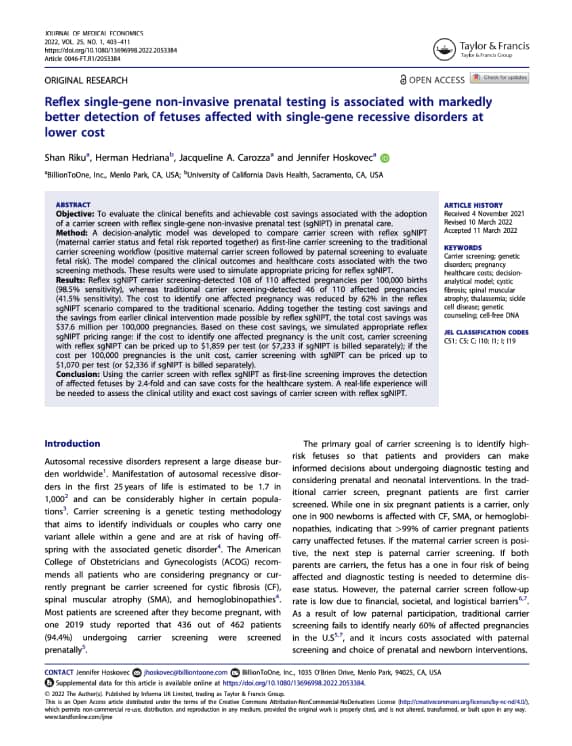
Single-Gene NIPT Analytical Validation
Published in Nature Scientific Reports
October 7, 2019
A novel high-throughput molecular counting method with single base-pair resolution enables accurate single-gene NIPT
- Proof of concept for QCT platform necessary for the technology of single-gene NIPT
- Analytical validity of single-gene NIPT with an estimated sensitivity of >98% and specificity of >99%
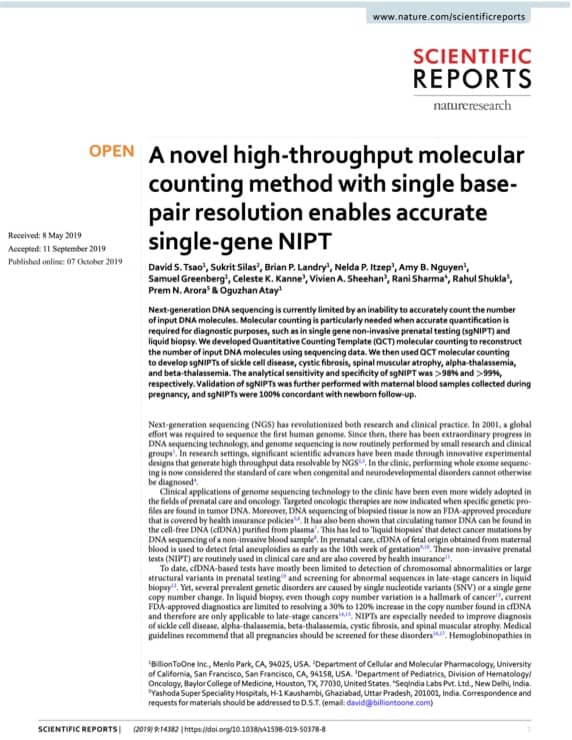
Liquid biopsy
Published in AACR 2022 Poster Session
April 10, 2022
Novel methylation-based, tissue-free ctDNA assay accurately quantifies longitudinal tumor burden changes for precision treatment monitoring
Read Article for Novel methylation-based, tissue-free ctDNA assay accurately quantifies longitudinal tumor burden changes for precision treatment monitoringLiquid biopsy
Published in AACR 2023 Poster Session
April 18, 2023